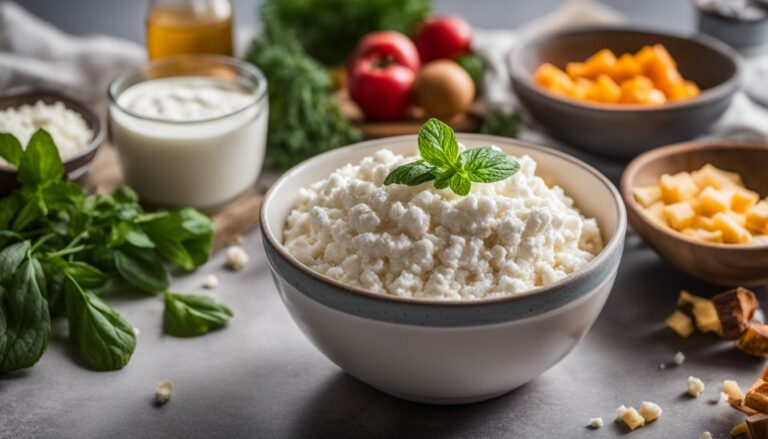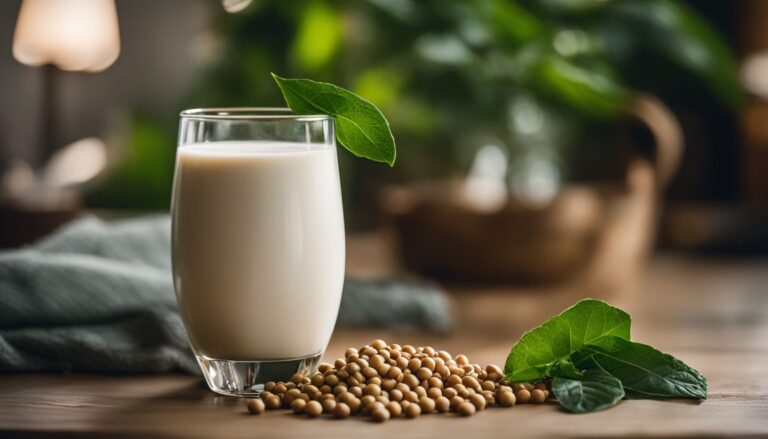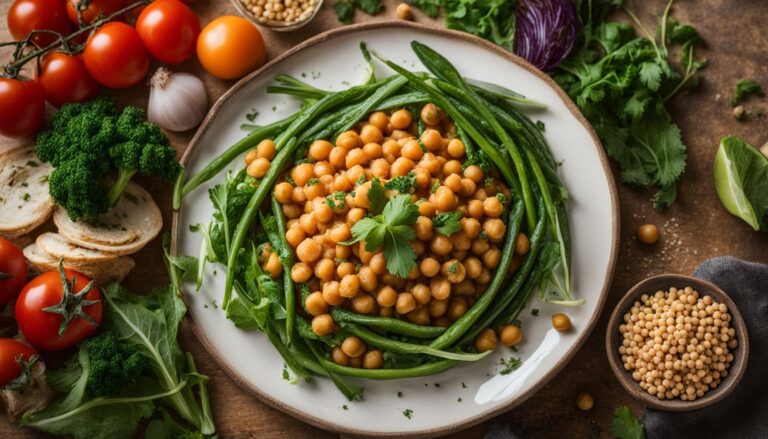Tofu Nutrition Facts: How This Plant-Based Protein Can Boost Your Health
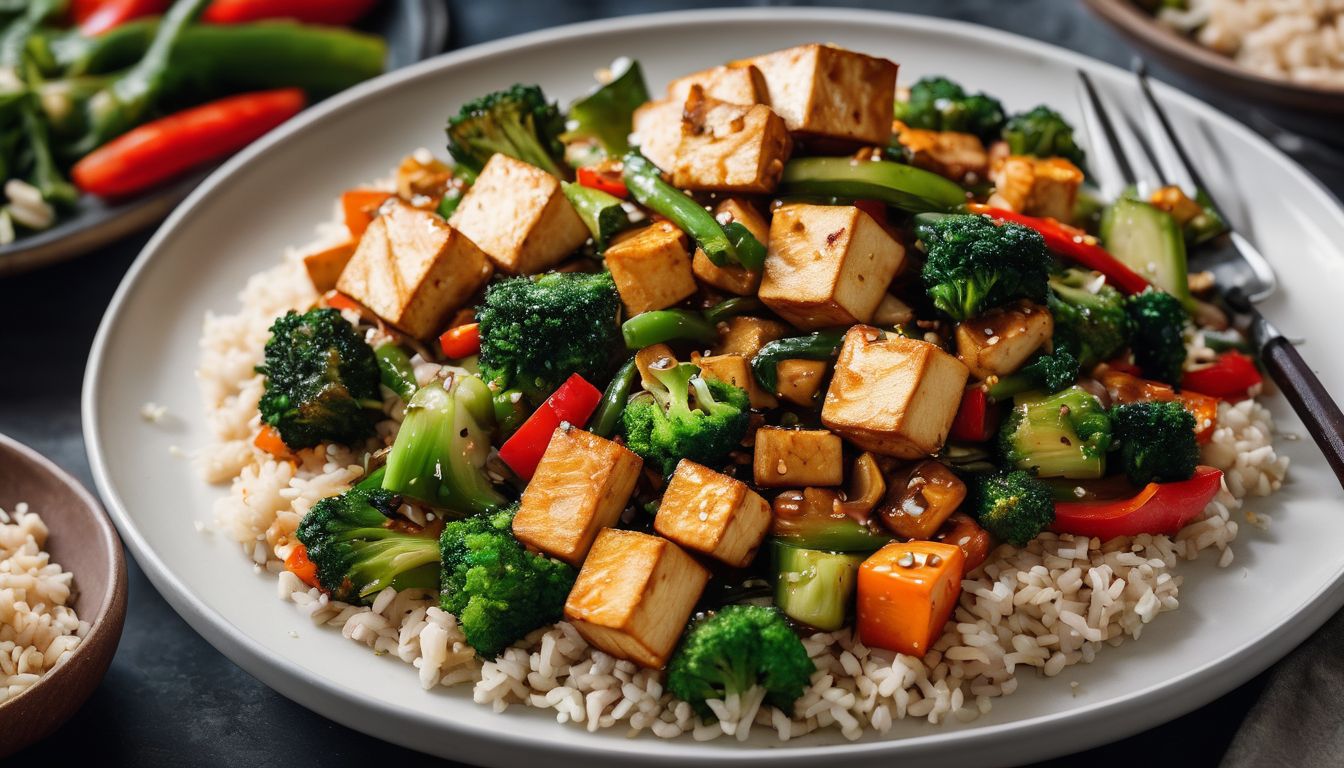
Looking for a nutritious, plant-based protein to boost your health? Tofu, a versatile ingredient hailed as a superfood, is packed with essential vitamins and minerals. This blog post will guide you through the many benefits of tofu, from its heart-healthy properties to its potential role in cancer prevention.
Read on to discover how this power-packed protein can elevate your diet to new healthy heights!
Key Takeaways
- Tofu is a plant – based protein that is high in protein, low in calories, and rich in essential vitamins and minerals.
- It contains all nine essential amino acids and is a great alternative to animal-based proteins.
- Tofu may reduce the risk of heart disease, prevent certain cancers, alleviate menopause symptoms, and promote osteoporosis prevention.
What is Tofu and its Nutritional Value?

Tofu is a plant-based protein that is high in protein, low in calories, and rich in essential vitamins and minerals. It also contains beneficial isoflavones.
High in protein

Tofu packs a big punch when it comes to protein content. This plant-based food holds an impressive 21.8 grams of protein in just half a cup serving. Not only is the quantity generous, the quality isn’t lacking either! Tofu features all nine essential amino acids that your body crucially needs but can’t produce on its own.
For those seeking alternatives to animal-based proteins, tofu emerges as an excellent choice. Its high-protein credentials make it a beneficial addition for everyone from athletes needing muscle recovery fuel to dieters looking for low-calorie yet filling meals, and even individuals simply aiming at healthier eating habits overall.
Low in calories
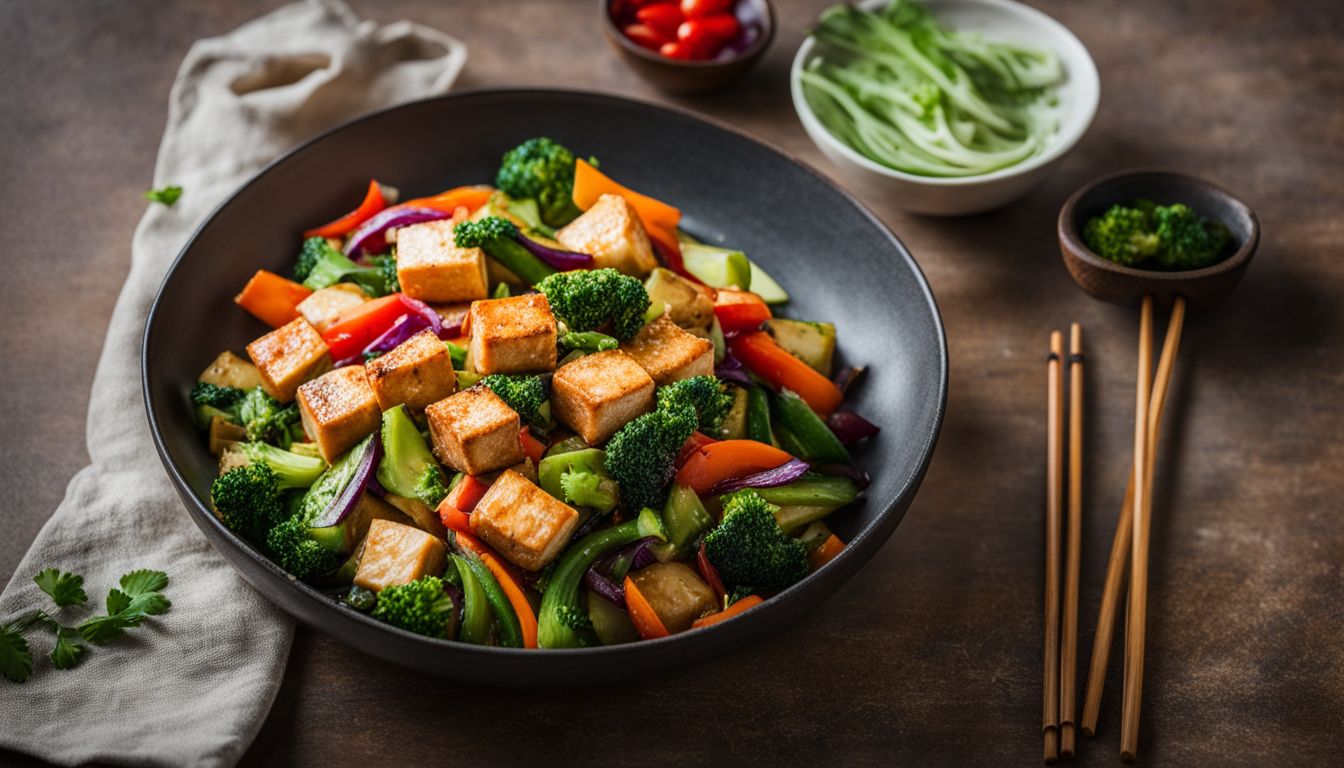
Tofu is a fantastic choice for those monitoring their caloric intake. A half-cup serving of tofu only delivers around 181 calories, well below the content of many other protein-rich foods.
Maintaining a calorie-conscious diet doesn’t mean you have to compromise on vital nutrients like protein either — tofu packs in 21.8 grams per serving!
Incorporating this low-calorie, high-protein food into your meals can support weight management strategies effectively. Despite its modest calorie count, tofu provides satiety, helping to curb hunger and prevent overeating later in the day.
With fewer calories than beans or lentils, tofu proves that plant-based proteins can successfully balance nutrition and taste without burdening you with extra calories.
Rich in essential vitamins and minerals

Tofu packs a healthy punch with its rich content of essential vitamins and minerals. It serves as an excellent source of iron, calcium, manganese, selenium and phosphorous – nutrients crucial for maintaining bone health, boosting immunity and aiding energy production.
Also noteworthy is tofu’s magnesium content which plays a significant role in heart health. Including this plant-based protein in your diet not only caters to the body’s nutritional needs but also contributes to overall health improvement.
In every serving of tofu nutrition profile, you’ll find generous amounts of B-vitamins that aid in various metabolic processes. Potassium found in tofu helps regulate fluid balance and nerve signals in the body while zinc boosts immune functionality.
Contains beneficial isoflavones

Tofu contains beneficial isoflavones, which are natural compounds known for their potential health benefits. These isoflavones act as antioxidants and may help reduce the risk of certain chronic diseases, such as heart disease and certain types of cancers.
Additionally, they have been studied for their potential to alleviate menopause symptoms and promote bone health by reducing the risk of osteoporosis. Including tofu in your diet can provide you with these beneficial isoflavones, along with its other nutritional advantages.
Health Benefits of Tofu

Tofu may reduce the risk of heart disease, prevent certain cancers, alleviate menopause symptoms, and promote osteoporosis prevention. Discover more about these benefits and how tofu can boost your health!
May reduce risk of heart disease

Tofu has been linked to a potential reduction in the risk of heart disease. This is because tofu is low in saturated fat and cholesterol, which are known to contribute to heart problems.
Additionally, the beneficial compounds found in tofu, such as isoflavones, may help improve blood lipid profiles and reduce inflammation in the body. Including tofu as part of a balanced diet can be a heart-healthy choice that supports overall cardiovascular wellness.
Incorporating tofu into your meals not only provides you with a good source of protein but also offers potential benefits for your heart health. By choosing tofu over animal-based protein sources high in saturated fats, you can enjoy delicious and nutritious meals that promote cardiovascular well-being.
May prevent certain cancers

Tofu, with its rich nutritional profile, may also play a role in preventing certain types of cancer. Tofu contains isoflavones, which are natural compounds that have been studied for their potential anti-cancer properties.
Research suggests that consuming tofu and other soy-based foods may be linked to a reduced risk of breast and prostate cancers. These isoflavones have shown promising effects in inhibiting the growth of cancer cells and reducing tumor formation.
Including tofu as part of a balanced diet could be a proactive way to help protect against certain types of cancer.
May alleviate menopause symptoms

Tofu may help alleviate menopause symptoms. Menopause is a natural phase of life for women, but it can come with uncomfortable symptoms like hot flashes and night sweats. The isoflavones found in tofu have been shown to mimic estrogen in the body, which can help regulate hormonal imbalances that contribute to these symptoms.
Adding tofu to your diet may provide some relief and improve overall well-being during this transitional period.
May promote osteoporosis prevention

Tofu, with its high calcium content, may promote osteoporosis prevention. Osteoporosis is a condition characterized by weak and brittle bones, often associated with aging. Calcium is an essential mineral for maintaining bone health and density.
Tofu contains approximately 150-200 milligrams of calcium per serving, making it a valuable addition to a diet aimed at preventing osteoporosis. By incorporating tofu into your meals regularly, you can ensure you’re getting the necessary nutrients to support strong and healthy bones as you age.
Allergies and Adverse Effects of Tofu

Tofu can potentially cause allergies in some individuals, especially those who are allergic to soy. It may also have an impact on thyroid function and should be consumed in moderation to avoid any adverse effects.
Potential allergies to soy

Some individuals may experience potential allergies to soy, the main ingredient in tofu. Soy allergies can manifest as symptoms such as hives, itching, swelling, difficulty breathing, and digestive issues like nausea or diarrhea.
It is important for people with soy allergies to avoid consuming tofu or any other products made from soybeans to prevent allergic reactions.
Potential impact on thyroid function

Tofu has been a subject of concern due to its potential impact on thyroid function. Some studies suggest that consuming soy products, including tofu, in large amounts may interfere with the body’s ability to absorb iodine, which is essential for proper thyroid function.
However, it’s important to note that moderate consumption of tofu as part of a balanced diet is generally considered safe for most individuals. If you have an existing thyroid condition or are taking medication for your thyroid, it would be wise to consult with your healthcare provider before making any major dietary changes involving soy products like tofu.
Risks of consuming excessive amounts

Consuming excessive amounts of tofu may pose some risks to your health. While tofu is generally considered safe when consumed in moderation, overconsumption can lead to certain issues.
One risk is the potential for digestive problems, such as bloating and gas, due to its high fiber content. Additionally, some people may be allergic to soy or have sensitivities that can cause adverse reactions like hives or swelling.
Furthermore, tofu contains compounds called isoflavones which have estrogen-like effects. Consumption of large amounts of isoflavones may interfere with hormone levels and function in the body.
Incorporating Tofu Into a Healthy Diet

Learn how to prepare and enjoy tofu in a variety of delicious and healthy recipes, choose organic and non-GMO options, and make the most of this plant-based protein powerhouse.
How to prepare tofu

Preparing tofu is easy and can be done in a variety of ways. Here are some simple steps to prepare tofu:
- Drain the tofu: Remove the tofu from its packaging and drain any excess liquid by placing it on a clean kitchen towel or paper towels. Gently press down on the tofu to remove as much moisture as possible.
- Slice or dice: Cut the tofu into slices, cubes, or whichever shape you prefer for your recipe. Thinner slices will cook faster, while larger cubes will retain a softer texture.
- Marinate or season: Tofu absorbs flavors well, so marinating it before cooking can enhance its taste. You can use a variety of marinades such as soy sauce, garlic, ginger, or your favorite herbs and spices. Alternatively, you can season the tofu directly with salt, pepper, or other seasonings.
- Choose your cooking method: There are several ways to cook tofu, depending on your desired texture and flavor. Some common methods include pan-frying, baking, grilling, stir-frying, or even air frying.
- Cook until golden brown: Regardless of the cooking method you choose, aim to cook the tofu until it turns golden brown on each side. This will give it a crispy exterior while maintaining a tender interior.
- Serve and enjoy: Once cooked to your liking, transfer the tofu to a plate and serve it immediately while still hot. Tofu can be enjoyed on its own as a protein-packed snack or added to various dishes such as stir-fries, salads, soups, wraps, and more.
Different varieties and shelf life
Tofu comes in various forms, each offering a different texture and shelf life. The following table presents some common types of tofu and their respective shelf-life.
| Variety | Texture | Shelf Life |
|---|---|---|
| Silken Tofu | Smooth and creamy, like custard. | Kept refrigerated, unopened silken tofu can last for up to two weeks past its printed expiration date. Once opened, it should be consumed within a week. |
| Soft Tofu | Marginally firmer than silken tofu but still very tender. | Similar to silken tofu, soft tofu can last up to two weeks past its printed expiration date if unopened and refrigerated. After opening, it should be consumed within a week. |
| Firm Tofu | Has a sturdy texture, much like feta cheese. | Refrigerated and unopened, firm tofu can last around two weeks past its expiration date. Once opened, it should be used within 7-10 days. |
| Extra Firm Tofu | Very dense and holds up well in dishes requiring a lot of handling or long cook times. | Extra firm tofu has a similar shelf life to firm tofu, lasting about two weeks past its expiration date if unopened and refrigerated. Once opened, it should also be consumed within 7-10 days. |
Remember that all types of tofu should be stored in a refrigerator and submerged in water to maintain its freshness. The water should be changed every day or two. If the tofu develops a sour smell or changes color, it should not be consumed.
Delicious and healthy tofu recipes
Tofu is a versatile ingredient that can be used in a variety of dishes. Here are some delicious and healthy tofu recipes to try:
- Tofu Scramble: Start your day with a protein-packed tofu scramble. Crumble firm tofu and sauté it with vegetables like bell peppers, onions, and spinach. Season with turmeric, garlic powder, and nutritional yeast for a flavorful twist.
- Teriyaki Tofu Stir-Fry: Create a savory stir-fry by marinating cubed tofu in teriyaki sauce. Sauté the tofu with broccoli, carrots, snap peas, and mushrooms. Serve over brown rice or quinoa for a complete meal.
- Tofu Buddha Bowl: Build a nutritious bowl by combining cooked quinoa or brown rice with marinated and grilled tofu cubes. Add roasted vegetables like sweet potatoes, Brussels sprouts, and kale. Top it off with a drizzle of tahini dressing.
- Tofu Veggie Noodles: Swap traditional pasta for zucchini noodles or bean noodles and toss them with pan-fried tofu strips, sautéed Asian vegetables like bok choy or snow peas, and a sesame-soy sauce.
- BBQ Tofu Sandwich: Spice up your sandwich game by grilling slices of marinated tofu until crispy on the outside. Layer it on whole grain bread with lettuce, tomato slices, avocado, and your favorite barbecue sauce.
- Tofu Stir-Fry with Peanut Sauce: Combine stir-fried tofu cubes with colorful bell peppers, snap peas, broccoli florets, and carrots in a tasty homemade peanut sauce made from natural peanut butter, soy sauce/tamari,
Choosing organic and non-GMO tofu
When choosing tofu, it is important to look for options that are organic and non-GMO. Organic tofu is made from soybeans that have been grown without the use of synthetic pesticides or fertilizers, reducing exposure to potentially harmful chemicals.
Non-GMO tofu means that it does not contain genetically modified organisms, providing a more natural and sustainable option. By opting for organic and non-GMO tofu, you can ensure that you are making a healthier choice for yourself and the environment.
Final thoughts
Incorporating tofu into your diet can be a smart choice for boosting your health. With its high protein content and essential amino acids, tofu provides valuable nutrition that supports cardiovascular health and bone strength.
Additionally, it is a versatile ingredient that can be used in various dishes, making it easy to incorporate into your meals. Whether you are looking to reduce your meat consumption or simply add more plant-based proteins to your diet, tofu is a healthy option that delivers numerous benefits.
So why not give tofu a try and enjoy the nutritional advantages it has to offer?.
Conclusion

Incorporating tofu into your diet can provide numerous health benefits. With its high protein content, essential vitamins and minerals, and beneficial isoflavones, tofu is a nutritious plant-based option that can boost your overall health.
Whether you’re looking to reduce the risk of heart disease, prevent certain cancers, or promote bone health, adding tofu to your meals can be a delicious and healthy choice. Start exploring different recipes today to enjoy the benefits of this versatile ingredient!
FAQs
1. What are tofu protein nutrition facts?
Tofu protein nutrition facts reveal it as a rich plant-based source of protein, with the quantity varying according to whether you consume raw tofu, firm or extra-firm.
2. How much protein is there in tofu?
The amount of protein in 3 oz of tofu depends on its type; for instance, firm tofu has more grams compared to soft varieties, and 100g of average tofu contains many grams of proteins.
3. Is Tofu good quality Protein?
Yes, comparing the quality and content level between meat and vegan proteins like tofu showcases that this soy product can be a great source of nutrients.
4. Does Chinese Tofu have any specific nutritional benefits?
Chinese Tofu shares similar nutrition facts with other types, offering high-quality proteins along with other essential nutrients beneficial for your health.
5. Can higher-protein versions such as Firm or Extra-Firm contribute significantly to daily intake?
Firm and extra-firm variants indeed pack more punch related to their soy tofu protein content which can considerably boost one’s regular intake while catering diversified dietary needs.
Sources referenced in this article
- https://www.healthline.com/nutrition/what-is-tofu
- https://www.health.com/nutrition/is-tofu-healthy
- https://nutritionfacts.org/topics/tofu/
- https://www.everydayhealth.com/diet-nutrition/diet/tofu-how-its-made-its-good-you-how-prepare-it/
- https://www.verywellfit.com/tofu-nutrition-facts-calories-and-health-benefits-4113988
- https://www.webmd.com/food-recipes/benefits-tofu
- https://www.cnbc.com/2023/08/30/is-tofu-actually-good-for-you-heres-what-a-nutritionist-says.html

Author
Years ago, the spark of my life’s passion ignited in my mind the moment I stepped into the local gym for the first time. The inaugural bead of perspiration, the initial endeavor, the very first surge of endorphins, and a sense of pride that washed over me post-workout marked the beginning of my deep-seated interest in strength sports, fitness, and sports nutrition. This very curiosity blossomed rapidly into a profound fascination, propelling me to earn a Master’s degree in Physical Education from the Academy of Physical Education in Krakow, followed by a Sports Manager diploma from the Jagiellonian University. My journey of growth led me to gain more specialized qualifications, such as being a certified personal trainer with a focus on sports dietetics, a lifeguard, and an instructor for wellness and corrective gymnastics. Theoretical knowledge paired seamlessly with practical experience, reinforcing my belief that the transformation of individuals under my guidance was also a reflection of my personal growth. This belief holds true even today. Each day, I strive to push the boundaries and explore new realms. These realms gently elevate me to greater heights. The unique combination of passion for my field and the continuous quest for growth fuels my drive to break new ground.




